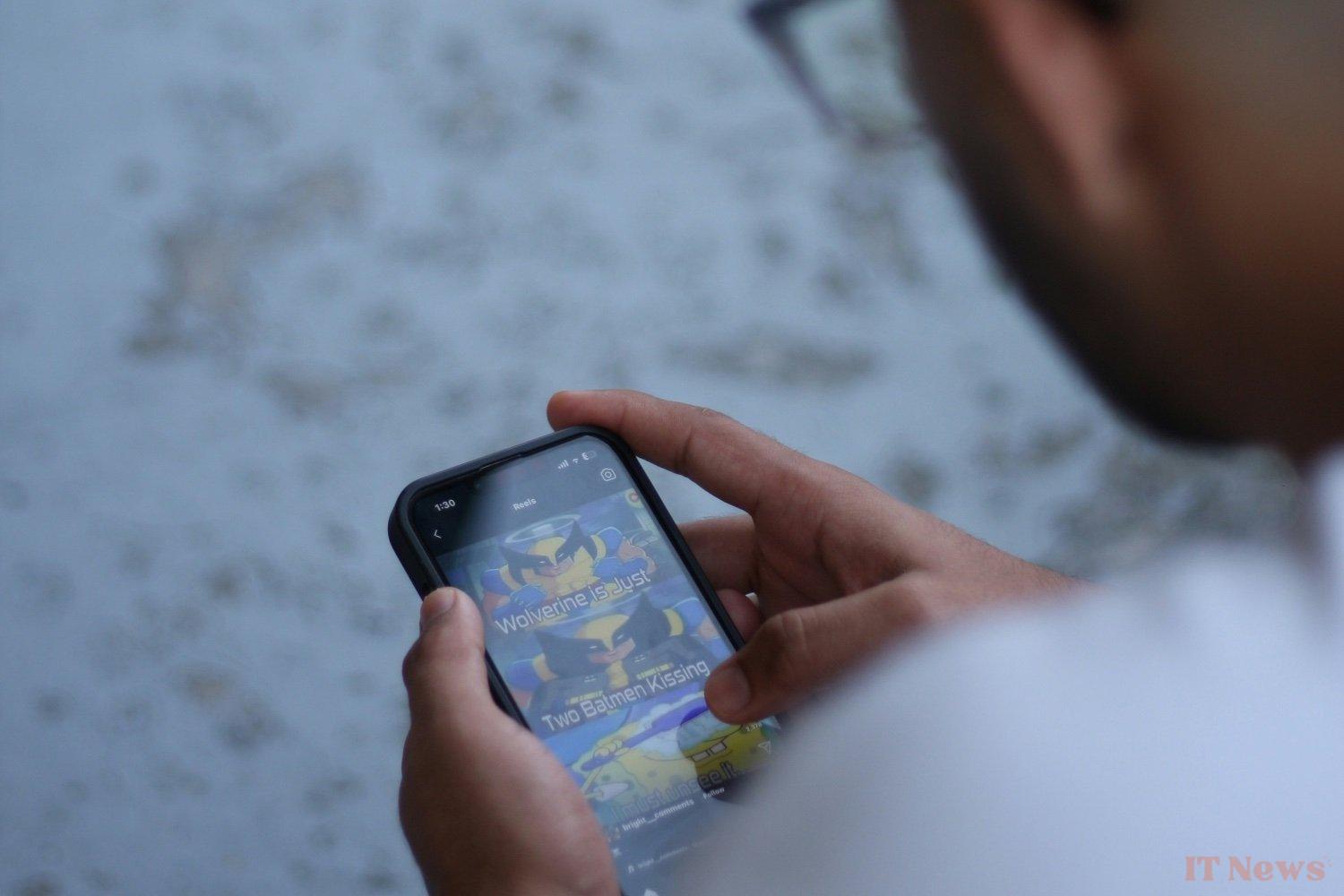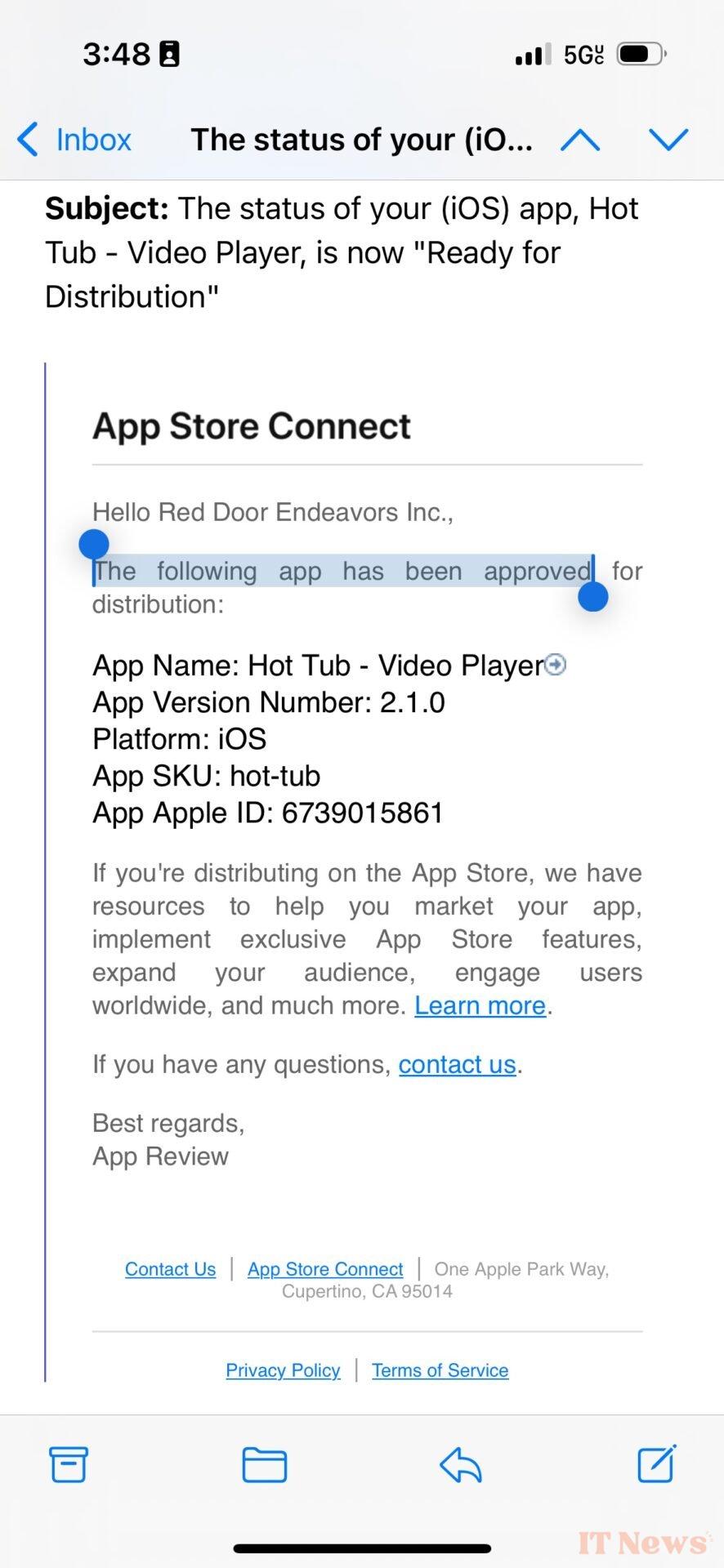Apple has decided to use the Hot Tub case to demonstrate the supposed dangers of alternative stores, and by extension of the regulation on digital markets (DMA) imposed on it by the European Union. A quick reminder of the facts: this Monday, AltStore PAL, one of the first alternative iOS stores, added Hot Tub to its catalog, which happens to be an application providing access to pornographic content. In this case, it is a search engine for videos hosted by PornHub and the main services of the genre.
Apple at war with the DMA
The announcement of AltStore PAL has caused a commotion at Apple, which denies having “approved” Hot Tub. Like all applications distributed in alternative stores, this one has nevertheless been subjected to the manufacturer’s yoke to obtain notarization. This is a process by which Apple must ensure the safety of applications. There is no question of finding malware in them, for example.
The notarization guidelines are clear: the operator of an alternative store cannot claim Apple's "approval" for notarized apps. Thus, we can read in the rule 5.2.4(a): "Apple Endorsements: Do not suggest or imply that Apple is a source or provider of the application, or that Apple endorses any representation regarding the quality or functionality [of the app]".
And yet, in the case of Hot Tub, Apple has indeed "endorsed" the application, as proven by Riley Testut, the developer of AltStore, by sharing the validation received from the manufacturer! In black and white, the Apple company confirms that the app has been duly approved for distribution... Apple can protest and talk about the "lie" of AltStore PAL, reality is stubborn.
It is all the more so since on several occasions in the past, Apple has used notarization to prevent the distribution of applications in an alternative store, not for strictly technical or security reasons, but because that they contained elements that the manufacturer did not like.
The Mini vMac emulator was thus rejected because of the word "Mac", a trademark registered by Apple. The argument can be understood, but it has nothing to do with notarization. The Epic Games Store has also had a run-in with Apple, which has rejected the store several times due to design issues.
Apple is playing the outrage card, recalling in passing a scandal by PornHub, which admitted in 2023 its involvement in illegal financial transactions related to human trafficking. Apple also denounces the existence of a “teens” category on the platform prohibited to those under 18. This is indeed problematic, even though the content of this section, and of the entire site, is supposed to only offer videos made by adults.
Is it really Apple's role to act as the guardian of good morals? Probably not, because the company allows a good number of apps that allow access to naughty content. No need to dig very far into social media applications (Reddit, X/Twitter, etc.) to feast your eyes. Worse yet, with Safari, Apple puts porn — and worse — at your fingertips! Should we ban these apps?
Apple also implicates Epic in the story. The creator of Fortnite covers the fees that AltStore should pay to Apple, in particular the Core Technology Fee (CTF) of €0.50 for each app installation from an alternative store. AltStore, which charged around €1 for its installation, has since been offered free of charge: any European can therefore use the store without having to pay anything and therefore access this “hardcore pornography” thanks to Epic.
Epic was keen to respond to Apple’s full-scale attack, recalling that the “subsidy” paid to AltStore was used to “cover Apple’s anticompetitive core technology fees [CTF]”. Fees described as illegal, making competition from alternative app stores “impossible”. "Apple continues to use security as a pretext to protect its monopoly power and avoid compliance with the DMA," the publisher added in its statement.
The free argument is rather strange, given that social media apps distributed in the App Store are also free and allow you to view pornographic content without Apple getting upset.
Beyond questions of semantics, the nature of the notarization or the app in question, Apple wants to send the message that its hands are tied by the European Commission, which was notified last December of Hot Tub's request for notarization and saw nothing wrong with it. The DMA prohibits Apple from preventing “repugnant” content from appearing on alternative stores.
In January 2024, the manufacturer deplored its lack of resources to manage the risks that these alternative stores would pose, “in particular applications containing scams, fraud and abuse, or exposing users to illegal, shocking or harmful content”. Implied: the official App Store is the only safe store.
The company should clean up its own house: there are countless applications authorized on the App Store that hid scams or allowed access to illegal content. A recent report highlighted the existence of numerous apps aimed at children that promote unrealistic beauty standards and dangerous eating practices, or that contain violent content or glorify criminal activity.




0 Comments